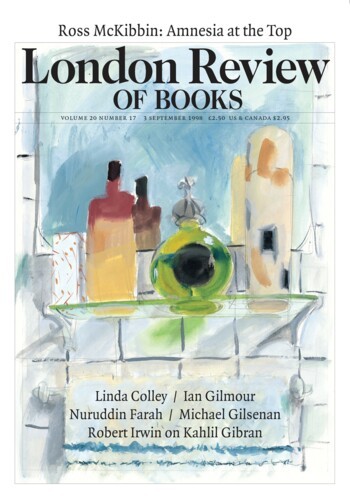Landlocked: Henry Green
Lorna Sage, 25 January 2001
Henry Green put in an incongruous cameo appearance in Jeremy Treglown’s 1994 biography of Roald Dahl. When an interviewer from the Houston Post asked the bestselling author of the low-life and hilarious ‘adult’ short-story collection Someone like You who his favourite British writer was, he answered loftily: ‘Henry Green.’ Treglown thought the reason might have...





